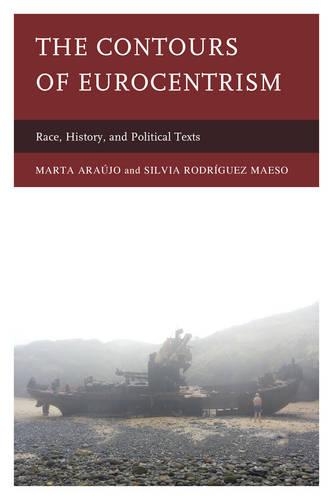
The Contours of Eurocentrism: Race, History, and Political Texts
(Hardback)
Publishing Details
The Contours of Eurocentrism: Race, History, and Political Texts
By (Author) Marta Arajo
By (author) Silvia Rodrguez Maeso
Bloomsbury Publishing PLC
Lexington Books
19th November 2015
United States
Classifications
Professional and Scholarly
Non Fiction
General and world history
Social discrimination and social justice
901
Physical Properties
Hardback
252
Width 161mm, Height 235mm, Spine 22mm
508g
Description
This book proposes an approach to Eurocentrism as a paradigm of knowledge production and interpretation rooted in the Western narrative of modernity and its racial governmentalities. Accordingly, it interrogates the relationship between knowledge, race, and power at the heart of debates on the making and circulation of history, opening up a tension, not so much with other histories, but with Eurocentrisms formulas of self-assurance, and attempts to accommodate other narratives. The book is an interdisciplinary endeavor that engages with diverse political and academic contexts and debates that reveal understandings of coloniality/modernity, specifically in education. Education, and in particular history teaching, is approached as a key arena in which to explore the (re)configuration of broader political and academic discourses and silences on power and race. Moving beyond discussions on national identity and the multicultural curriculum, it critically examines textbooks in Portugal and the discussions raised during empirical research with actors from a wide variety of fields, such as academia, policy and decision-making, schooling and the media. These are addressed in relation to the international context that saw the consolidation of global and regional organizationssuch as UNESCO and the Council of Europewhich established scientific knowledge as a key solution to political conflicts (conventionally defined as exacerbated nationalism, ethnocentrism and cultural misunderstandings). Central to these discussions are the ideas of multiperspectivity and the inclusion of content about the other, which are addressed in detail through a case study on depictions of the African national liberation movements. This book aims to contribute to the critique of the contemporary workings of Eurocentrism and racism that have frustrated the struggles for the decolonization of knowledge and continue to shape our understandings of the world order in racially hierarchical terms, by re-centering the West/Europe.
Reviews
Marta Arajo and Silvia Maeso offer a unique critical lens on Eurocentrism. Analyzing Portuguese school history books as "racial texts," they dissect the paradigmatic discursive assumptions of race and power in prevailing knowledge formation regarding Europe and is others, embedded ideas of European racial ascendancy and inferiorization, racially ascribed power, and dehumanization. Arajo and Maeso thus offer a timely and significant analysis of Eurocentrism in the spirit of race critical theory. -- David Theo Goldberg, Director, Humanities Research Institute, University of California
What exactly is Eurocentrism, and why does it matter Eschewing easy definitions, this book embarks on a wide-ranging examination of the practices of knowing and narrating, silencing and forgetting which have sustained and legitimized a colonial and racist world order over five centuries. Arajo and Maeso extend existing debates by carefully distinguishing between conventional notions of Eurocentrism as 'bias' and racism as 'prejudice', and the transformatory implications of an understanding of Eurocentrism as an enduring and ubiquitous practice of knowledge and power. Treating history textbooks, pedagogical discussions, curriculum reforms and public commemorations as political and racial texts, the authors elaborate a profound and very concrete interrogation of Eurocentrism as it is reproduced in institutionalized activities of knowledge production. -- Branwen Gruffydd Jones, Goldsmiths University of London
This book once again reveals Marta Arajo and Silvia Rodrguez Maeso as bold, imaginative and creative scholars. They provide a succinct and insightful review of key works that address the literature on Eurocentrism and racism. They challenge the assumption that Europe has emerged as an autonomous entity and they problematize the centrality of Nazism and Holocaust in current approaches to race and history teaching since the 1940s. At the same time they illuminate the many difficulties to be found in textbooks sanctioned by the Portuguese state as it tries to circumvent discussion of race in teaching the history of Portugal. In this way, they expose how Portuguese efforts are symptomatic of the master narratives to be found in nations across the European Union: namely, relentless efforts to develop a master narrative that links the past to the present by evading race. This book is a major addition to the corpus of literature in the context of the world racial order. It should be read widely. -- Kwame Nimako, founder and director of the Summer School on Black Europe in Amsterdam
Author Bio
Marta Arajo is senior researcher at the Centre for Social Studies, University of Coimbra. Silvia Rodrguez Maeso is senior researcher and lecturer at the Centre for Social Studies, University of Coimbra.
